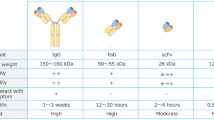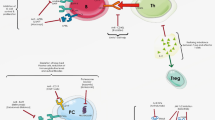Abstract.
Chronic asthma is characterised by inflammation of the airways. Although corticosteroids are effective therapy, the risk benefit ratio is unacceptable in a minority of patients requiring chronic and high dose corticosteroid therapy because of adverse effects. There is accumulating circumstantial evidence that the CD4+ T-cell plays a central role in the pathogenesis of chronic asthma. Therapeutic strategies directed specifically at this cell type may offer a novel approach. Controlled clinical trials of cyclosporin A were effective in both chronic asthma and in a model of provoked asthma. Other immunomodulators such as FK506, rapamycin and mycophenolic acid may be useful given their modes of action on the T lymphocyte. The use of monoclonal antibody therapy directed towards these cells and T-cell peptide specific immunotherapy have been evaluated in preliminary studies and demonstrated promising results. Strategies targeting T cell co-stimulatory molecules and T-cell derived cytokines may be of therapeutic utility.
Similar content being viewed by others
Author information
Authors and Affiliations
Additional information
Received 27 May 1998; returned for revision 21 August 1998; returned for final revision 9 June 1999; accepted by M. J. Parnham 14 July 1999.
Rights and permissions
About this article
Cite this article
Kon, O., Kay, A. Anti-T cell strategies in asthma. Inflamm. res. 48, 516–523 (1999). https://doi.org/10.1007/s000110050496
Issue Date:
DOI: https://doi.org/10.1007/s000110050496




